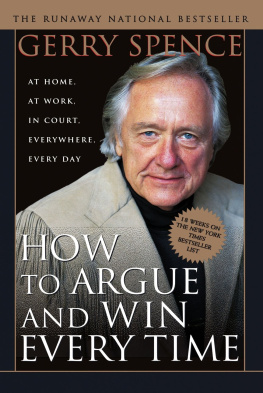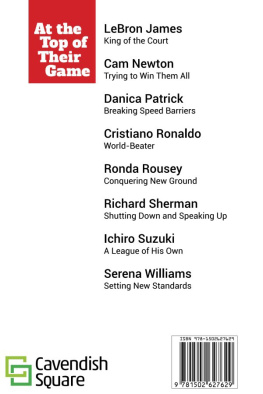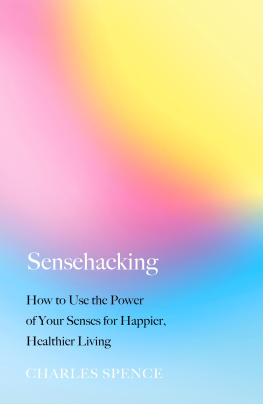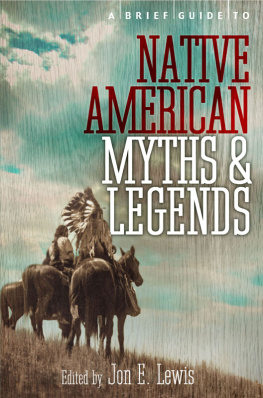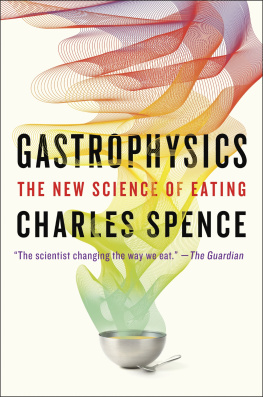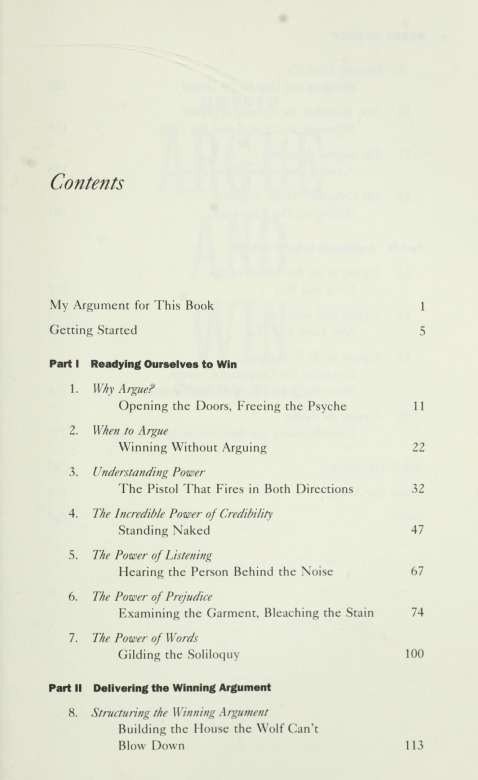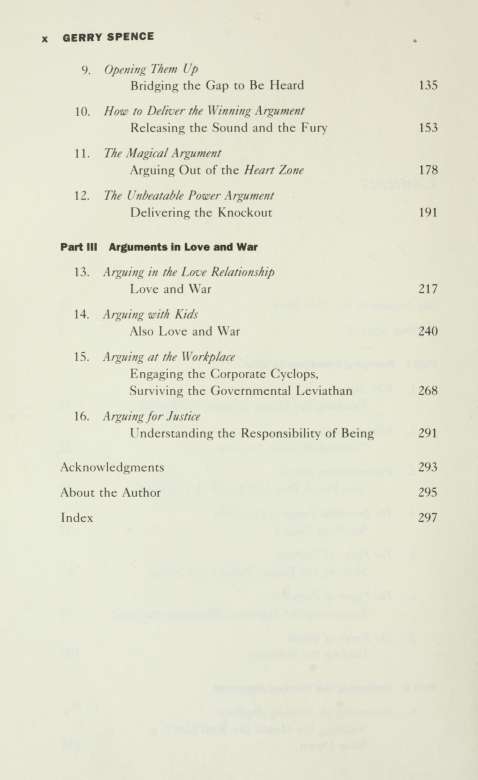This book made available by the Internet Archive.
To my darling Imaging who taught me that love, at last, is always the winning argument.
HOW TO
ARGUE AND WIN
EVERY TIME
My Argument for This Book
The art of arguing is the art of living. We argue because we must, because life demands it, because, at last, life itself is but an argument. I have written this book because I must. Argument is my profession. Arguments are the hammers and nails by which I have, for over forty years, constructed winning cases for my clients. I believe, as Native Americans believe, that the greatest gift is the gift of learning, and that that gift is not complete until it is passed on. My dream, therefore, is to share with you what I have learned about argument. Otherwise I fear that all the pain, the self-doubt, the fear, the failures I have experienced in learning how to make the winning argument will be wasted.
Argument is, indeed, an art. There is a technique to it, a mindset, but anybody can deliver the winning argument. We can make the winning argument in the kitchen, the bedroom, the courtroom, the boardroom, at workanywhere. I argue that the powerful argument comes not from disavowing our divine uniqueness in favor of someone else's style or values, but from tapping into the wondrous well of our own personhood. But how? That is where the magic of argument lies, and we shall learn that magic in the pages that follow.
We have traveled to the moon and back, but when we launch ourselves into outer space, we send forth a severely retarded species. In essence we remain the brute, for when confronted the brute attacks, and when faced with need or desire it takes by force from the weaker members of the hierarchy. It is an anomaly that we can split the atom, but we are nearly powerless to persuade each other
2 GERRY SPENCE
to embrace justice. We can recombine our genes, but we cannot, in simple ways, ask each other for love. The ultimate danger, of course, is placing the power of technology in the hands of the savage whose ability to argue has advanced little over the grunt and growl of his ancient ancestors. In short, we have learned how to dominate people as things, but when relating to people as people we still tread wearily in the Dark Ages.
I do not expect to save the human race by this effort. I believe, however, that we must and can make small beginnings. In the same way that man began his technological journey by first chipping away at stones, we must learn simple and effective ways of speaking with each other. We must learn to speak to and to hear our mates and our children. We must learn how to effectively forward our interests at work. We could advance the human race enormously if we but learned to communicate honestly with our neighbors. We could experience a staggering breakthrough for the species if we but learned to achieve our needs and realize our dreams through argument, rather than by splattering human bodies all across the landscape.
I have arguments to make of my own, arguments that define who I am and that support my life's purpose as I envision it. I can think of no better place to deliver my own homilies than in a book on how to argue. You will encounter me herein. I have thrown open my doors. I have not only made my arguments on how to argue but, in doing so, I have ardently, with premeditation and unabashed forethought, argued for causes and ideas that are critical to me. I hope I will be successful in my arguments, that they will engender change and bring about evolution. But I make room for your disagreement, for your arguments. For without the power to argue back, you would have no power to hear or understand me in the first place, is that not so? Without your power, I would be alone.
I dream of a book that will help you achieve what you want in your life. Life is brief. It needs to be lived with every advantage. I dream of a book that will help you emerge from this experience with new wings that will enable you to break free of the cocoons of convention. I see you flying. I see you arguing for what you want without fear of banishment. I see you communicating your needs without injuring yourselves or your relationships. I see you creating, playing, winning. This dream brings me much joy, for out of these psychic chippings I hopeyes, I predictthat one day we shall
My Argument for This Book 3
have evolved into the species that we, as our own creators, have envisioned for ourselves from the beginning.

March 1995 Jackson, Wyoming
Getting Started
Everyone wants to argue. Everyone does. Everyone needs to. Sometimes the argument is screamed through tears. Sometimes it becomes only a paroxysm of impotent rage. Sometimes it is a tiny mumble in the corner of the room. Sometimes it is engaging, charismatic, moving. Sometimes, in the dark of night, in a lonely bed, the argument we wanted to make is shouted silently, safely, into the mind's desolate ear.
While birds can fly, only humans can argue. Argument is the affirmation of our being. It is the principal instrument of human intercourse. Without argument the species would perish. As a subtle suggestion, it is the means by which we aid another. As a warning, it steers us from danger. As exposition, it teaches. As an expression of creativity, it is the gift of ourselves. As a protest, it struggles for justice. As a reasoned dialogue, it resolves disputes. As an assertion of self, it engenders respect. As an entreaty of love, it expresses our devotion. As a plea, it generates mercy. As a charismatic oration, it moves multitudes and changes history. We must argueto help, to warn, to lead, to love, to create, to learn, to enjoy justiceto be.
Everyone, every breathing person can make the winning argument. Many are forced into the mire and mud of the stagnant, immutable past. Locked in their psychic closets, many do not argue. And many who dare fail in their arguments and are frustrated or silenced. Many more argue almost blindlylike those who have never held a bat in their hands who strike at the ball, strike and strike until finally, and by sheer chance, the ball collides with the bat.
6 GERRY SPENCE
are made. The fault is not God's, or fate's, or the bad luck of the draw that has left us with wee voices or unimposing presences. We do not fail to make a brilliant riposte or persuasive argument because we lack electric genius, or lightning wit. We do not fail because we possess but a sparse fund of words. We fail to make the successful argument because we affix certain locks to ourselves, locks that imprison our arguments, or, having made the argument, locks that bar us from assuming a successful stance or from adopting a winning method.

